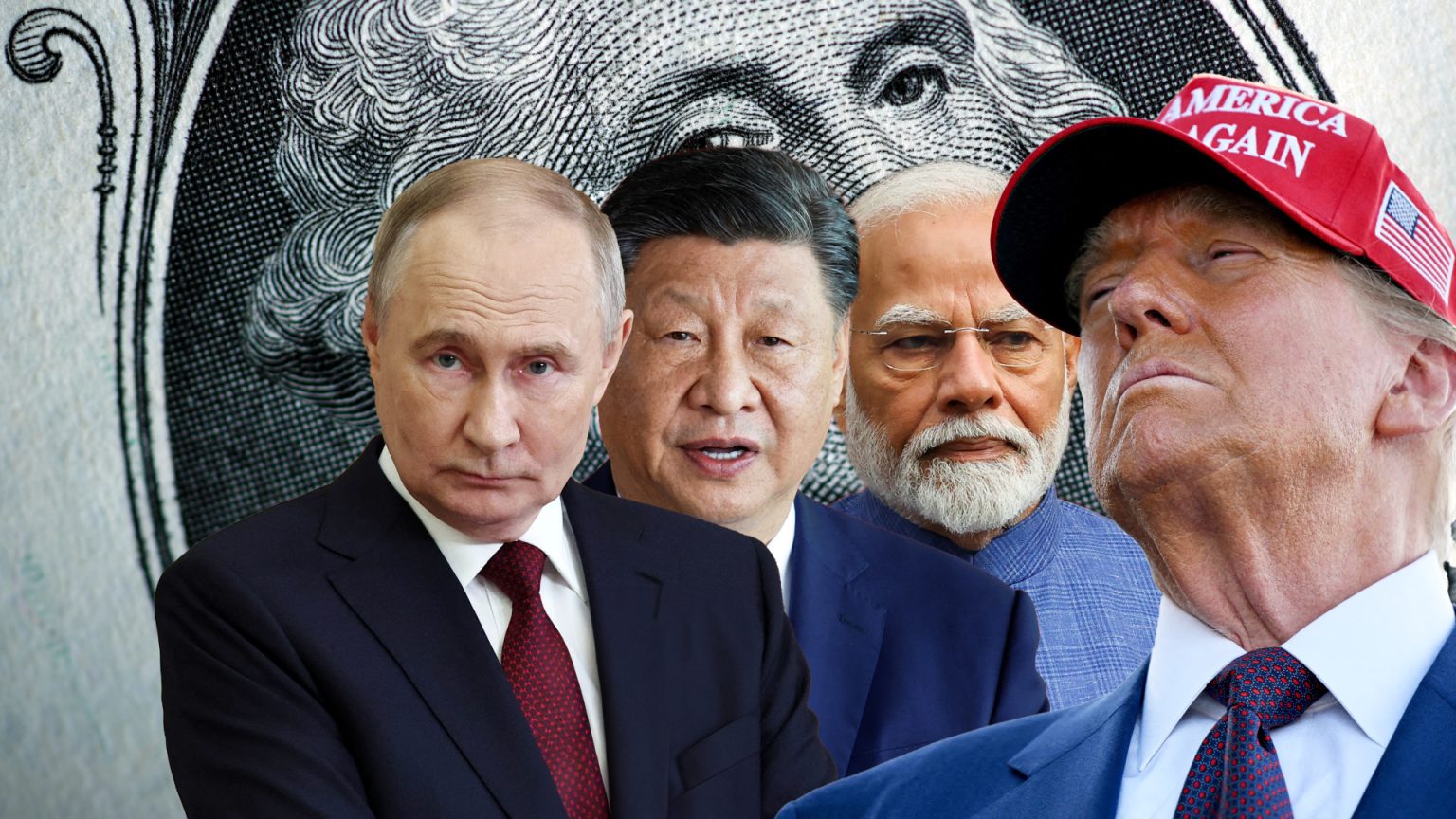US President-elect Donald Trump has issued a stern warning to the BRICS nations—comprising Brazil, Russia, India, China, and South Africa—threatening to impose 100 percent tariffs on their goods if they choose to replace the US dollar in international trade. Currently, the US dollar reigns as the world’s leading reserve currency, accounting for nearly 80 percent of global trade transactions. This predominant status not only provides the United States with substantial economic benefits, allowing it to borrow at lower costs, but also grants it considerable geopolitical leverage to influence international affairs.
The dominance of the dollar, however, is increasingly being challenged by BRICS nations, which have accused the US government of weaponizing the currency for political ends. Many countries within this economic alliance are disillusioned with the perceived imbalances created by such dominance, which they argue can lead to economic instability for nations that rely heavily on the dollar for trade. This has sparked discussions among BRICS nations regarding the development of a common currency or alternative trading mechanisms that would lessen their dependency on the US dollar and safeguard their economic interests.
In response to these emerging discussions, President-elect Trump has reiterated that the United States will not sit idly by should BRICS nations continue their efforts to undermine the dollar. His administration, emphasizing the importance of maintaining the dollar’s status, is likely to adopt aggressive measures to deter economic shifts that may weaken America’s economic position. This stance reflects broader concerns about the potential reconfiguration of global trade alliances and the implications of a diminished dollar hegemony for US economic and national security.
The geopolitical context is further complicated by ongoing global conflicts, notably the recent war in Gaza, which has devastated the Palestinian economy. The humanitarian crisis resulting from the conflict has exacerbated economic hardships in the region, challenging international efforts aimed at achieving peace and stability. The impact on the Palestinian economy is profound, highlighting a broader trend wherein geopolitical issues can significantly affect economic viability and operational stability within certain regions.
In addition to these international tensions, Nigeria is reforming its economy amidst significant challenges. As Africa’s largest economy, Nigeria is grappling with the dual pressures of internal governance and external economic reliance, particularly in the context of fluctuating oil prices and international market demands. Efforts toward economic diversification, investment in infrastructure, and fostering a conducive business environment are part of the government’s strategy aimed at revitalizing and stabilizing the economy.
In conclusion, the intersecting narratives of US dollar dominance, the aspirations of BRICS nations for greater economic autonomy, and the challenges facing individual countries like Palestine and Nigeria provide a complex backdrop for understanding current global economic dynamics. While President-elect Trump’s threats underscore a commitment to preserving the dollar’s supremacy, the underlying motivations and actions of BRICS nations for monetary independence hint at a significant reconfiguration of global trade relations in the future. As these issues unfold, the responses from major powers, smaller economies, and international organizations will be pivotal in shaping a new economic landscape.

